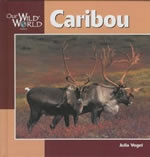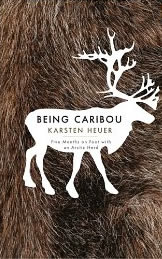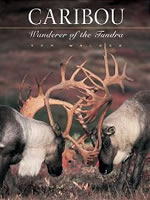Caribou
Buffalo
Black-Footed Ferret
Caribou
Elk
Florida Panther
Grizzly Bear
Lynx
Moose
Red Wolf
Caribou
(Rangifer tarandus caribou)
Caribou are the largest of the reindeer species and are the only animal of the deer family that both the males and females develop antlers. While there are large herds of caribou in Alaska and Northern Canada, there is only one small herd left in the lower 48 states. This is the Selkirk Mountain herd which lives in a 40 mile range from northern Idaho to Canada. This herd of woodland caribou is listed as an endangered species.
Caribou Highlights:
- Male bull caribou weigh as much as 600 pounds while female caribou weigh closer to 300 pounds.
- Caribou eat grasses, mosses, lichens, fungi, and twigs and leaves of birches and willows.
- Female caribou have one calf in the spring.
- Caribou usually live about eight to ten years.
- Mosquitoes are a major nuisance for caribou in early summer and caribou can lose up to 1/2 pint of blood a day when mosquitoes are numerous.
One of the largest herds of caribou in the United States is the Porcupine caribou herd that lives mainly in the Arctic National Wildlife Refuge. This herd has around 123,000 members and they range over 96,000 square miles. Their summer and winter ranges are about 400 miles apart but satellite tracking of the herd shows that they don't always go in a straight line. The Pocupine herd has been shown to travel over 3,000 miles between their summer and winter ranges in some years.
Read more about the Porcupine caribou herd that lives in the Arctic National Wildlife Refuge.
Arctic National Wildlife Refuge
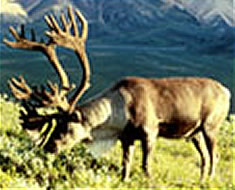
US Fish and Wildlife Service Photo
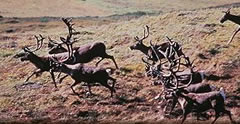
NPS Photo Gates of the Arctic NP
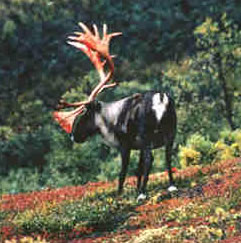
NPS Photo Lake Clark National Park
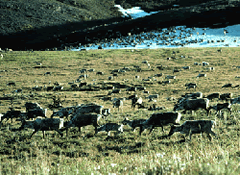
USFWS - Arctic National Wildlife Refuge
